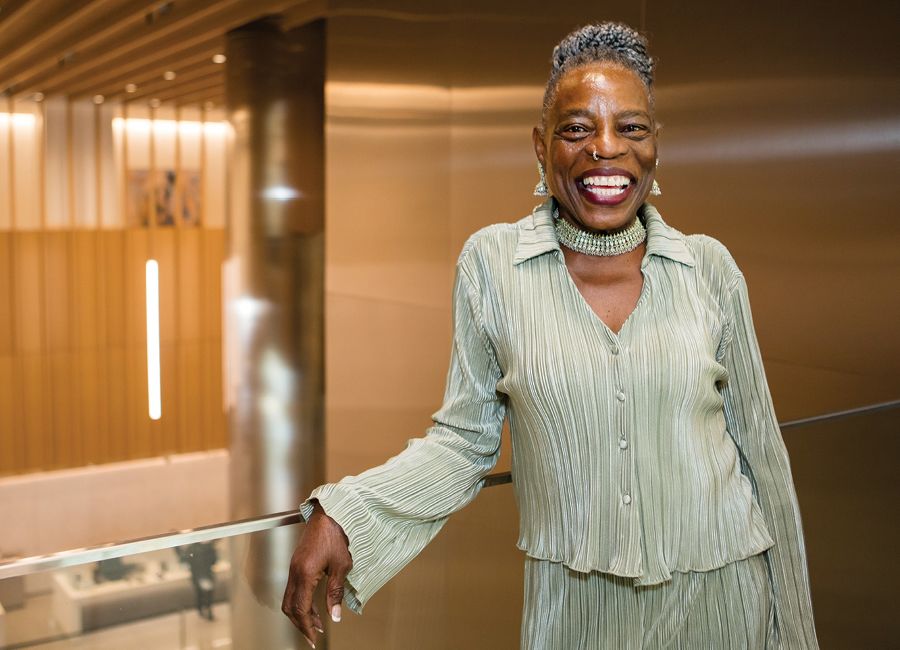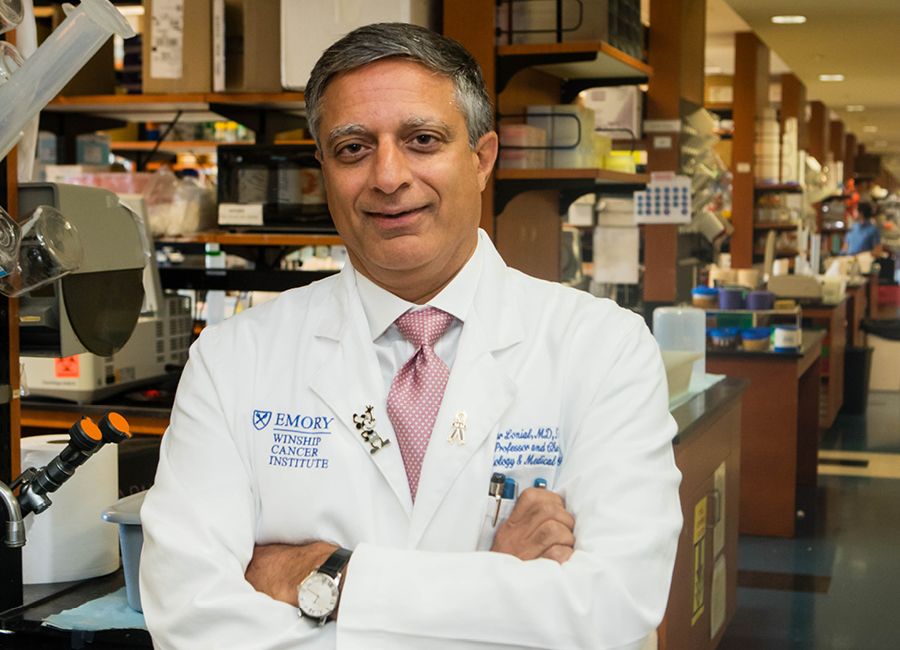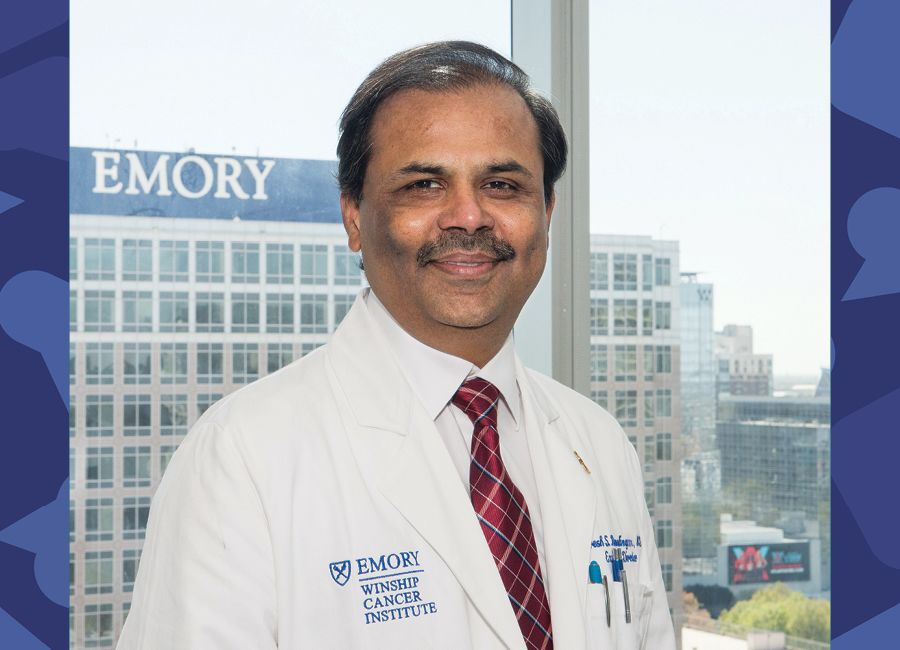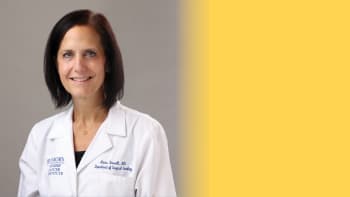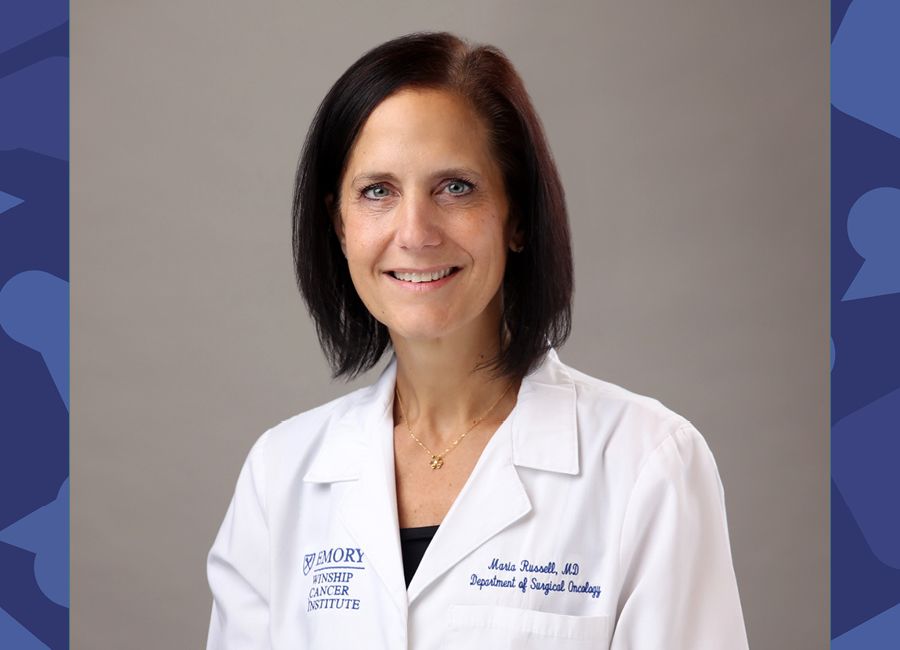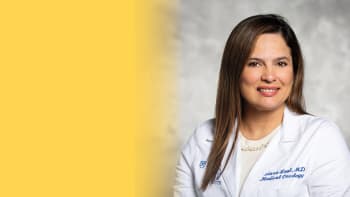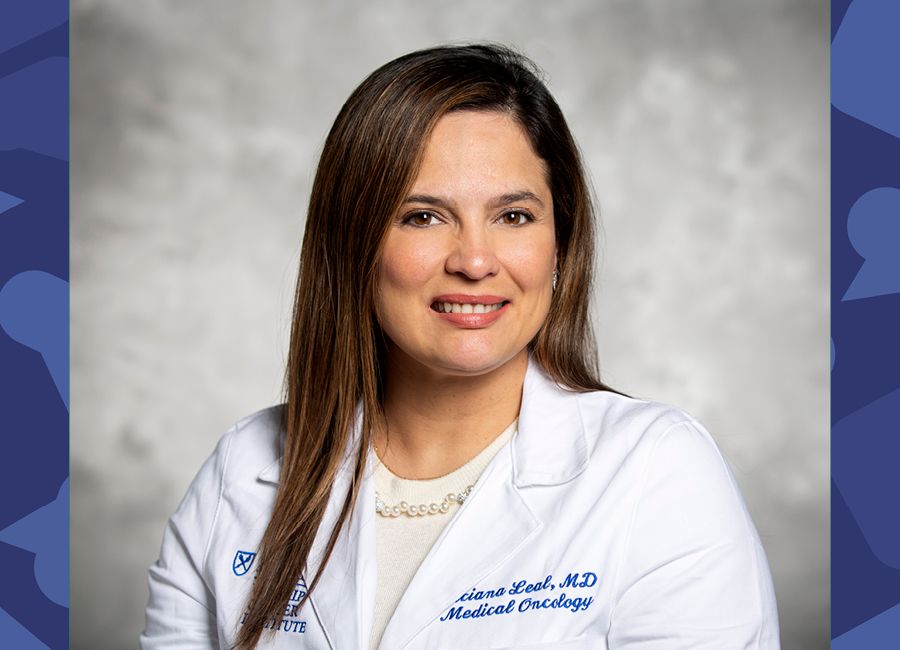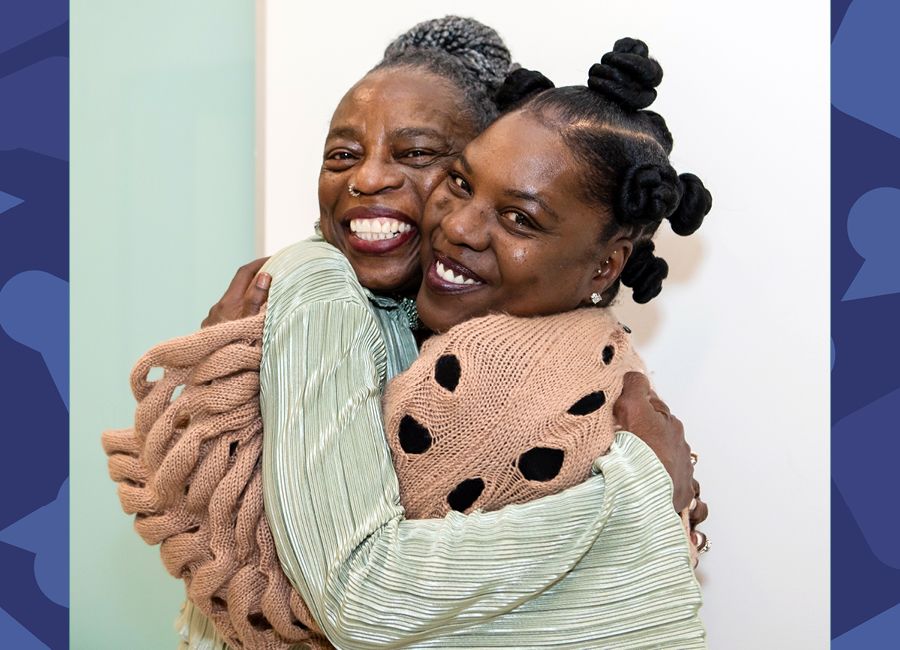Why a Second Opinion for Cancer Care Matters
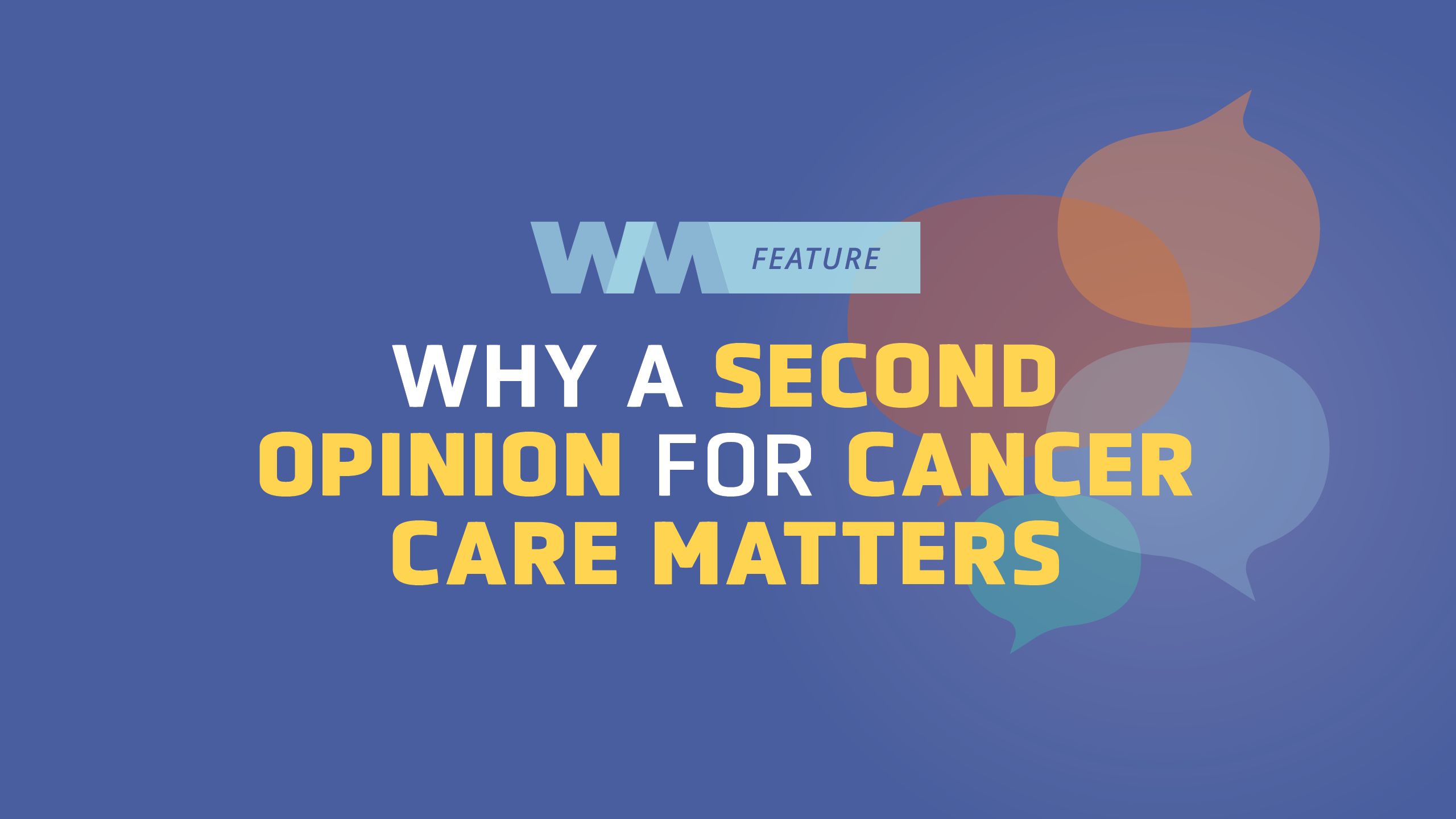
A second opinion could make all the difference in the experience and the outcomes

A second opinion could make all the difference in the experience and the outcomes
Phyllis Hollowell wasn’t about to leave her life to chance. “As soon as I was told I had cancer,” she says, “I just wanted to do whatever it took to live.” Although she respected the medical team that gave her the diagnosis, “whatever it took” included getting a second opinion.
“When I went to Winship, they confirmed my diagnosis and gave me a plan,” Hollowell says. “This gave me more doctors behind me and gave me more confidence because I wanted to get to what needed to be done right away.”
Phyllis Hollowell
Phyllis Hollowell
With that first diagnosis, most patients generally don’t know much about cancer. Then suddenly they are expected to make big decisions, fast. It’s easy to feel confused, overwhelmed and emotionally drained. After working up the strength and courage to face the news and make sense of unfamiliar medical terms, the idea of starting over to get a second opinion may seem exhausting. For many, the path of least resistance is simply to accept the first opinion without seeking another.
Cancer experts strongly recommend that you need a second opinion when it comes to cancer care. From receiving a more accurate diagnosis or, even in rare cases, learning that you don’t even have cancer at all, to identifying a better treatment plan—there are many important reasons to seek another perspective and additional insight in what could be a matter of life and death.
Often, doctors agree on a diagnosis, but not always. Still, many patients hesitate to get a second opinion, sometimes out of fear that the news might be worse. While that’s possible, the unknown could turn out to be their greatest fear.

Phyllis Hollowell wasn’t about to leave her life to chance. “As soon as I was told I had cancer,” she says, “I just wanted to do whatever it took to live.” Although she respected the medical team that gave her the diagnosis, “whatever it took” included getting a second opinion.
“When I went to Winship, they confirmed my diagnosis and gave me a plan,” Hollowell says. “This gave me more doctors behind me and gave me more confidence because I wanted to get to what needed to be done right away.”
Phyllis Hollowell
Phyllis Hollowell
With that first diagnosis, most patients generally don’t know much about cancer. Then suddenly they are expected to make big decisions, fast. It’s easy to feel confused, overwhelmed and emotionally drained. After working up the strength and courage to face the news and make sense of unfamiliar medical terms, the idea of starting over to get a second opinion may seem exhausting. For many, the path of least resistance is simply to accept the first opinion without seeking another.
Cancer experts strongly recommend that you need a second opinion when it comes to cancer care. From receiving a more accurate diagnosis or, even in rare cases, learning that you don’t even have cancer at all, to identifying a better treatment plan—there are many important reasons to seek another perspective and additional insight in what could be a matter of life and death.
Often, doctors agree on a diagnosis, but not always. Still, many patients hesitate to get a second opinion, sometimes out of fear that the news might be worse. While that’s possible, the unknown could turn out to be their greatest fear.
What NCI-designated Comprehensive Cancer Centers offer

“The diagnosis and management of a patient is not just dependent on what a pathology report says,” according to Sagar Lonial, chief medical officer at Winship Cancer Institute of Emory University and chair and professor in the Department of Hematology and Medical Oncology at Emory University School of Medicine. “There are many other factors that go into designing or creating a treatment plan beyond the pathology report,” he says.
Sagar Lonial
Sagar Lonial
Lonial says there is a real advantage in seeking a second opinion at a National Cancer Institute-designated Comprehensive Cancer Center like Winship. “What coming to an NCI-designated cancer center allows you to do is to be seen at a place that really focuses on the subtleties that may not be as simple as just a pathology report giving you a certain treatment approach,” he says.
Lonial says those subtleties include understanding the potential impact of genetics or gene profiling on treatment selection, patient functional status, performance status, co-morbidities and treatment approaches.
It’s possible to receive an incorrect diagnosis—and when that happens, it can significantly impact the quality of care and a patient’s outcome.
Misdiagnoses can result from limited access to advanced technology, or lack of experience with a specific rare cancer type, says Suresh S. Ramalingam, Winship’s executive director and the Roberto C. Goizueta Chair in Cancer Research at Emory University School of Medicine. “If a patient, say, has breast cancer and has initially been seen by a general oncologist, having a second opinion from a breast cancer specialist will add to the care of that patient.” He adds, “Sometimes it may not change what is being done but it helps make sure that everything that needs to be done to maximize the possibility of a good outcome has been done.”
That’s another advantage of getting a second opinion from an NCI-designated Comprehensive Cancer Center: access to physicians with experience and expertise in diagnosing and treating your type of cancer, including rare and complex cancers.
It’s not uncommon for a diagnosis to be very different in a second opinion—sometimes dramatically different.
“Patients have been sent to me with a cancer diagnosis who didn’t have cancer,” Lonial says. “I won’t say that happens every week in clinic, but it certainly happens a couple times a year in my group. There are other times when the diagnosis is subtly changed such that it impacts the treatment proposed for a diagnosis that wasn’t exactly correct. With a little more time and effort spent on reviewing the diagnosis, we made a different diagnosis that changed the treatment approach for a given patient. That’s not uncommon at a center like ours.”
Getting a second opinion at an NCI-designated Comprehensive Cancer Center also offers patients more treatment options because NCI-designated centers provide —and pioneer—the latest innovations in treatment, including clinical trials of novel therapies.
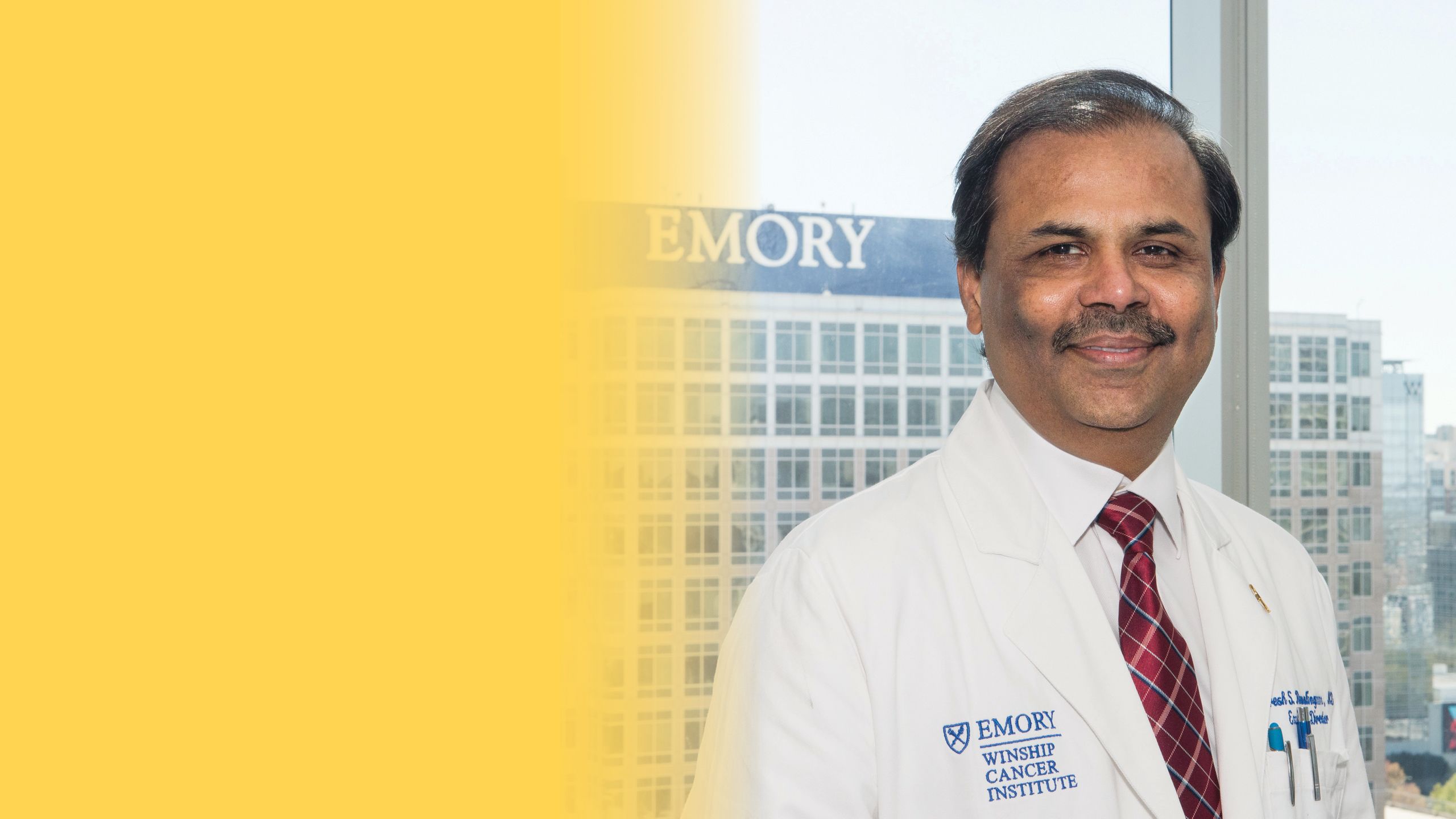
“The diagnosis and management of a patient is not just dependent on what a pathology report says,” according to Sagar Lonial, chief medical officer at Winship Cancer Institute of Emory University and chair and professor in the Department of Hematology and Medical Oncology at Emory University School of Medicine. “There are many other factors that go into designing or creating a treatment plan beyond the pathology report,” he says.
Sagar Lonial
Sagar Lonial
Lonial says there is a real advantage in seeking a second opinion at a National Cancer Institute-designated Comprehensive Cancer Center like Winship. “What coming to an NCI-designated cancer center allows you to do is to be seen at a place that really focuses on the subtleties that may not be as simple as just a pathology report giving you a certain treatment approach,” he says.
Lonial says those subtleties include understanding the potential impact of genetics or gene profiling on treatment selection, patient functional status, performance status, co-morbidities and treatment approaches.
It’s possible to receive an incorrect diagnosis—and when that happens, it can significantly impact the quality of care and a patient’s outcome.
Suresh S. Ramalingam
Suresh S. Ramalingam
Misdiagnoses can result from limited access to advanced technology, or lack of experience with a specific rare cancer type, says Suresh S. Ramalingam, Winship’s executive director and the Roberto C. Goizueta Chair in Cancer Research at Emory University School of Medicine. “If a patient, say, has breast cancer and has initially been seen by a general oncologist, having a second opinion from a breast cancer specialist will add to the care of that patient.” He adds, “Sometimes it may not change what is being done but it helps make sure that everything that needs to be done to maximize the possibility of a good outcome has been done.”
That’s another advantage of getting a second opinion from an NCI-designated Comprehensive Cancer Center: access to physicians with experience and expertise in diagnosing and treating your type of cancer, including rare and complex cancers.
It’s not uncommon for a diagnosis to be very different in a second opinion—sometimes dramatically different.
“Patients have been sent to me with a cancer diagnosis who didn’t have cancer,” Lonial says. “I won’t say that happens every week in clinic, but it certainly happens a couple times a year in my group. There are other times when the diagnosis is subtly changed such that it impacts the treatment proposed for a diagnosis that wasn’t exactly correct. With a little more time and effort spent on reviewing the diagnosis, we made a different diagnosis that changed the treatment approach for a given patient. That’s not uncommon at a center like ours.”
Getting a second opinion at an NCI-designated Comprehensive Cancer Center also offers patients more treatment options because NCI-designated centers provide —and pioneer—the latest innovations in treatment, including clinical trials of novel therapies.
Building a bigger team

Patients sometimes worry that their oncologist will be insulted or feel a lack of trust if they go for a second opinion. But in many cases they need not worry.
“I think if you’re dealing with a generalist who sees a lot of different cancers, I can count on one hand the number of generalists that have not wanted to take the feedback I’m giving as a specialist in terms of management of that disease,” Lonial says. “I think from a patient perspective, it’s just building a bigger team.”
Lonial says that if your physician is offended by your going to a specialized center and getting a second opinion, “you almost need to wonder whether that physician is really the optimal partner for you. Because if they’re not willing to learn and listen, then are they really the best doctor to take care of you?”
This brings up another misconception about second opinions: that it’s about choosing between doctors. It actually doesn’t always result in an either/or scenario. Sometimes the second opinion physician brings an approach to the table which complements the initial physician, and they can then partner together to help the patient, rather than selecting one over the other.
“As a surgeon, you will have to pick between us for the surgery,” says surgical oncologist Maria C. Russell, Winship’s chief quality officer and the Wadley R. Glenn Chair of Surgery for Academic Programs at Emory University School of Medicine. “But there have been times when I’m providing the expert opinion, and the patient can work with their local medical team but with me guiding them.” She adds, “Collaboration can work, and the great thing is most people in medicine are focused on the optimal result, not on who is in the lead. The care of the patient should come first.”
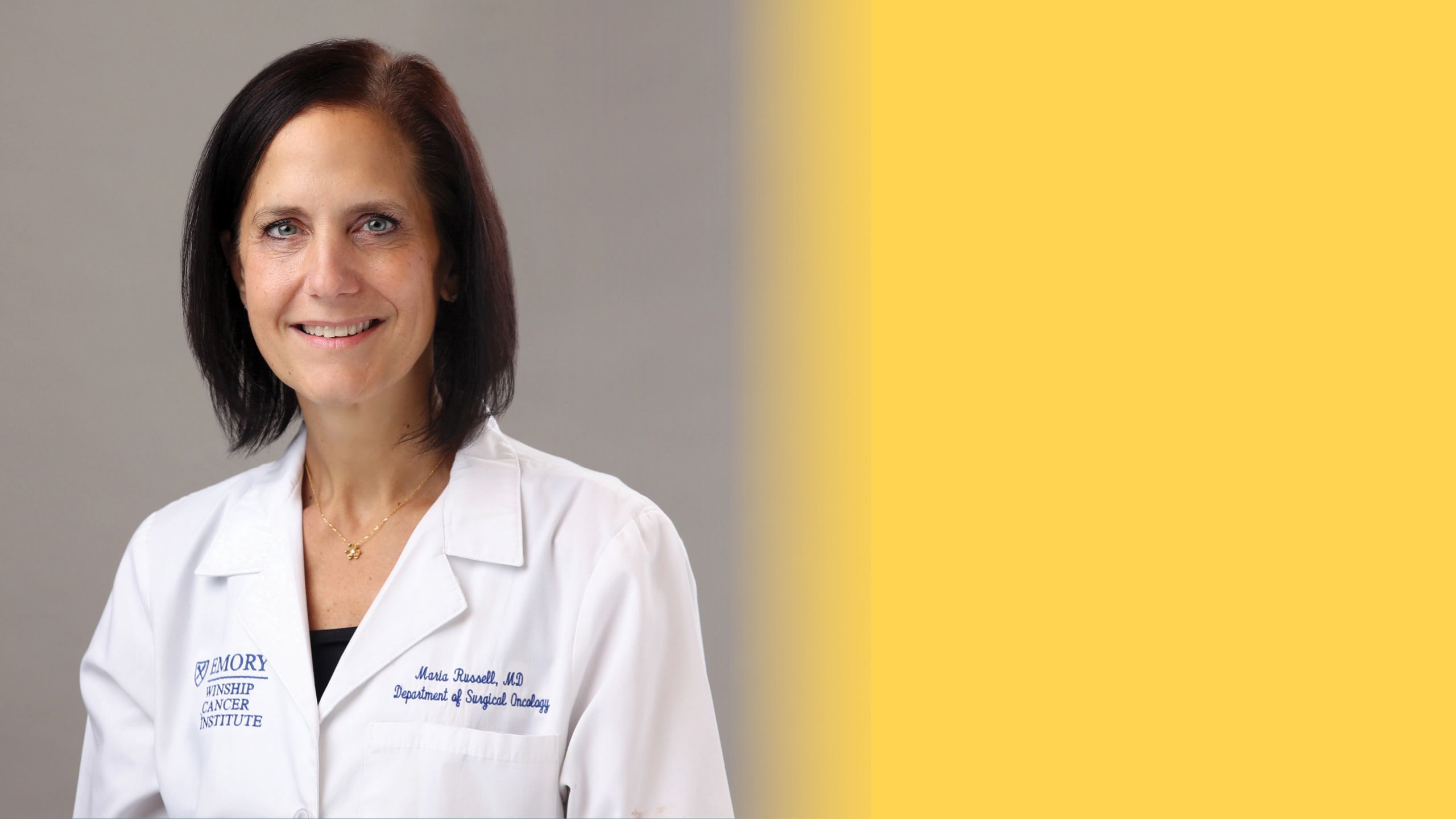
Patients sometimes worry that their oncologist will be insulted or feel a lack of trust if they go for a second opinion. But in many cases they need not worry.
“I think if you’re dealing with a generalist who sees a lot of different cancers, I can count on one hand the number of generalists that have not wanted to take the feedback I’m giving as a specialist in terms of management of that disease,” Lonial says. “I think from a patient perspective, it’s just building a bigger team.”
Lonial says that if your physician is offended by your going to a specialized center and getting a second opinion, “you almost need to wonder whether that physician is really the optimal partner for you. Because if they’re not willing to learn and listen, then are they really the best doctor to take care of you?”
This brings up another misconception about second opinions: that it’s about choosing between doctors. It actually doesn’t always result in an either/or scenario. Sometimes the second opinion physician brings an approach to the table which complements the initial physician, and they can then partner together to help the patient, rather than selecting one over the other.
Maria C. Russell
Maria C. Russell
“As a surgeon, you will have to pick between us for the surgery,” says surgical oncologist Maria C. Russell, Winship’s chief quality officer and the Wadley R. Glenn Chair of Surgery for Academic Programs at Emory University School of Medicine. “But there have been times when I’m providing the expert opinion, and the patient can work with their local medical team but with me guiding them.” She adds, “Collaboration can work, and the great thing is most people in medicine are focused on the optimal result, not on who is in the lead. The care of the patient should come first.”
A partner for your care

A second opinion isn’t just about hearing a different medical perspective—it’s also an opportunity to assess your own comfort level with the physician. Does this doctor communicate clearly? Do they make you feel heard and supported? “Many people don’t consider this aspect of a second opinion, but you need to feel comfortable with your oncologist, beyond just their treatment plan,” Russell says. “You are starting a long process of care, and you don’t want to be with the wrong partner.”
This isn’t just a time to assess bedside manner, but also communication skills. After all, this person will not only be your physician but your guide through a medical world that can be confusing.
“It’s important because we want the person seeking care to feel like they understand what’s being discussed—even when the topics are complex. And you want a doctor who won’t get frustrated if you need something explained more than once,” says Ticiana Leal, leader of Winship’s lung cancer disease team and director of the Thoracic Medical Oncology Program in the Department of Hematology and Medical Oncology at Emory University School of Medicine. “You already may feel apprehensive when it comes to what treatments you have to do—you don’t want more confusion adding to this feeling.”
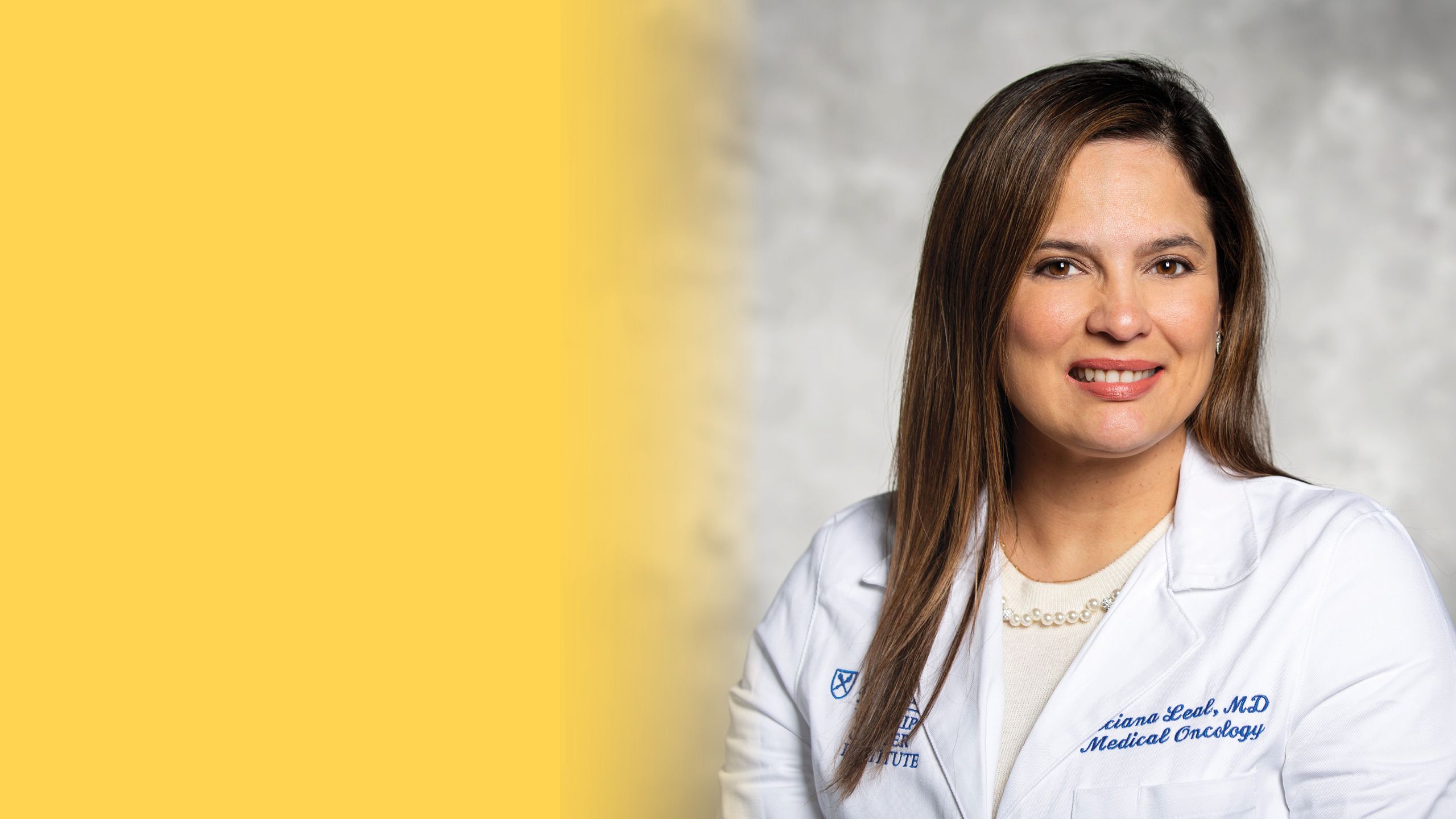
A second opinion isn’t just about hearing a different medical perspective—it’s also an opportunity to assess your own comfort level with the physician. Does this doctor communicate clearly? Do they make you feel heard and supported? “Many people don’t consider this aspect of a second opinion, but you need to feel comfortable with your oncologist, beyond just their treatment plan,” Russell says. “You are starting a long process of care, and you don’t want to be with the wrong partner.”
This isn’t just a time to assess bedside manner, but also communication skills. After all, this person will not only be your physician but your guide through a medical world that can be confusing.
Ticiana Leal
Ticiana Leal
“It’s important because we want the person seeking care to feel like they understand what’s being discussed—even when the topics are complex. And you want a doctor who won’t get frustrated if you need something explained more than once,” says Ticiana Leal, leader of Winship’s lung cancer disease team and director of the Thoracic Medical Oncology Program in the Department of Hematology and Medical Oncology at Emory University School of Medicine. “You already may feel apprehensive when it comes to what treatments you have to do—you don’t want more confusion adding to this feeling.”
The power of relief

The second opinion has one more vital strength: it can put you at ease. Patients often worry there has been a mistake in their diagnosis. Having it confirmed by a second opinion can give you greater confidence in your oncologist and path forward.
“Many times the second opinion reveals that your physician has it right,” Leal says. “Just hearing that can take you from tense to ready to take things on. That can be worth so much in terms of the process.”
Phyllis Hollowell, who went on to have surgery at Winship, is adamant about going for that extra step. “Not getting a second opinion is gambling with your health,” she says. “It just isn’t worth it.”
Story by Eric Butterman has written for more than
50 publications, including Glamour and Men's Journal.
Designed by Linda Dobson
Illustration by Joey Guidone
Photography by Jenni Girtman

Phyllis Hollowell hugging her daughter.
Phyllis Hollowell hugging her daughter.
The second opinion has one more vital strength: it can put you at ease. Patients often worry there has been a mistake in their diagnosis. Having it confirmed by a second opinion can give you greater confidence in your oncologist and path forward.
“Many times the second opinion reveals that your physician has it right,” Leal says. “Just hearing that can take you from tense to ready to take things on. That can be worth so much in terms of the process.”
Phyllis Hollowell, who went on to have surgery at Winship, is adamant about going for that extra step. “Not getting a second opinion is gambling with your health,” she says. “It just isn’t worth it.”
Story by Eric Butterman has written for more than
50 publications, including Glamour and Men's Journal.
Designed by Linda Dobson
Illustration by Joey Guidone
Photography by Jenni Girtman
A second opinion (and more) within the same cancer center
A second opinion doesn’t always mean going elsewhere. At Winship, for example, doctors come together in multidisciplinary tumor board meetings to provide second—and sometimes third or fourth—opinions. The tumor board meeting is a conference often focused on the more complicated cancer cases, says Maria C. Russell, Winship’s chief quality officer, and a hallmark of NCI-designated cancer centers.
“A group of physicians from multiple medical disciplines, including surgery, medical oncology, radiation oncology and radiology, with experience in treating the patient’s condition together review the patient’s medical files and then discuss treatment options,” Russell explains. “Everyone has an equal voice, regardless of years of experience, with value coming from each of them having different points of view. We give our thoughts on what is appropriate treatment and sequencing of treatment for each patient.”
Russell says it can be less confusing for patients by getting the expert opinions of all attending the tumor board meeting. “This way, they have a comprehensive plan before starting on treatment,” she says. “This is one of the key advantages of our multidisciplinary institution.”

A second opinion (and more) within the same cancer center
A second opinion doesn’t always mean going elsewhere. At Winship, for example, doctors come together in multidisciplinary tumor board meetings to provide second—and sometimes third or fourth—opinions. The tumor board meeting is a conference often focused on the more complicated cancer cases, says Maria C. Russell, Winship’s chief quality officer, and a hallmark of NCI-designated cancer centers.
“A group of physicians from multiple medical disciplines, including surgery, medical oncology, radiation oncology and radiology, with experience in treating the patient’s condition together review the patient’s medical files and then discuss treatment options,” Russell explains. “Everyone has an equal voice, regardless of years of experience, with value coming from each of them having different points of view. We give our thoughts on what is appropriate treatment and sequencing of treatment for each patient.”
Russell says it can be less confusing for patients by getting the expert opinions of all attending the tumor board meeting. “This way, they have a comprehensive plan before starting on treatment,” she says. “This is one of the key advantages of our multidisciplinary institution.”
Care tailored to your needs
Care for patients with cancer at Winship includes leading cancer specialists collaborating across disciplines to tailor treatment plans to each patient’s needs; innovative therapies and clinical trials; comprehensive patient and family support services; and a care experience aimed at easing the burden of cancer.

More from Winship Cancer Institute



